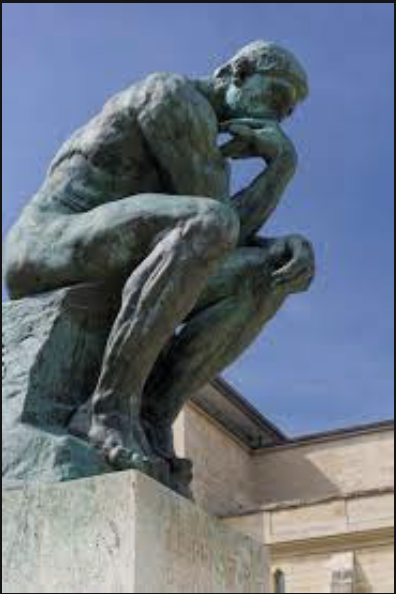Wishing everyone in the United States a very happy July 4th this weekend. I am writing from Mexico today where we are spending time with the Kochlowski family, who were our neighbors in Beijing.
I have written here a lot about finding happiness and the importance of relationships in doing so. My post of March 29, 2021 featured this extensively and includes one of my favorite Ted Talks from a Harvard researcher proving the secret to long-term happiness is the quality of one’s relationships. That post is here.
Amid the news we have experienced lately resulting from Supreme Court decisions in the US, I stumbled upon a discussion of philosophy I would like to share with this community. Please humor me because I am very much a novice philosophy student. Yet, there are some great lessons here. Given the Monday Morning Mojo exists to share positive, inspiring stories intended to uplift, I thought this would provide a perfect mid-year missive.
Michael Schur And The Good Place
I titled this, Philosophy 101: Finding Happiness, because last week I listened to a podcast featuring Michael Schur, a former Saturday Night Live skit writer, and more recently the writer of the American fantasy comedy television series, the Good Place. Schur is a somewhat expert in the topic of philosophy and ethics, and he introduced these subjects with simple explanations. By the way, The Good Place, on Prime Video, stars Ted Danson and Kristen Bell, explores topics of morality and ethics, and it is steeped in a discussion of philosophy and happiness. I am watching this now as part of my entertainment and education.
A Basic View on Utilitarianism
In the podcast I listened to, Schur introduced a philosopher by the name of Jeremy Bentham. Bentham was alive from 1748-1832 and is known as the father of utilitarianism. I didn’t know a lot about utilitarianism before, however I have learned it is a moral theory arguing actions should be judged, right or wrong, to the extent they increase or decrease human well-being or “utility”. Bentham is known for the belief that “it is the greatest happiness of the greatest number that is the measure of right and wrong”. I also learned the greatest failing of utilitarianism is is that it fails to take into account considerations of justice. We can imagine instances where a certain course of action would produce great benefits for society, but in some cases they could also be clearly unjust. For those that are still with me, check out the following video. This explains more about what utilitarianism by an MIT Professor, and it introduces the interesting Bentham himself.
Aristotle And His Beliefs
Michael Schur’s interview goes on to discuss the important role Aristotle played and his own view of happiness. Aristotle talks a lot about the combination of a human being which is intellectually, physically and emotionally healthy, which leads to Eudaimonia which equals happiness. I was reflecting on my own happiness when considering this, as I know when I accomplish certain tasks and check things off my things to do, I get a dopamine rush. That seems to equate very much to what Aristotle professed in Eudaimonia. I’d be interested to hear your views on this. Take a look at this simple video, if you are still with me, presenting many of Aristotle’s concepts.
In Memory of Gerard Breton
One final thought for the week. One example of a person who was morally and ethically a model citizen passed away this week in New Jersey. Gerard Breton is his name, and he was the father of my college roommate, Homere Breton. Besides serving as a fantastic father and husband, Dr. Breton was known as an outstanding pathologist. Some of his most notable professional recognitions came about after 9/11 when he performed the first definitive autopsy conclusively linking the cause of death of Officer Zadroga to the exposure to toxic dust and the debris accumulated in his lungs during his heroic recovery efforts at Ground Zero. Dr. Breton’s findings were pivotal as one of the strongest cases arising out of post-9/11 ailments and gave way to the James L. Zadroga Health and Compensation Act (2006), granting line-of-duty death benefits and medical compensation for the families of the responders who lost their lives, and for those subsequently suffering chronic health conditions due to their sacrifice and/or involvement.
It’s ironic I am writing about the philosophy and the contribution of Homere’s father today, because Homere took many philosophy courses at our university and loved to debate about philosophical and moral issues. Homere, our thoughts are with you, Lillian, Rachel and Mimi’s family.
Again, this is a slight departure from my normal Monday Morning Mojo posts, however I found the whole topic of philosophy and happiness worthy to share. I hope you agree, and if not, at least I hope you learned something.
Have a great week ahead and thanks for being part of this community.
Onwards and upwards.





Thank you and rest in peace Dr. Breton. Your 9/11 pathological findings were the foundation first responder families left to grieve their loss but with death benefits and medical compensation. I know many of us were wishing there was something we could do to ease the pain and burden of those left behind. while we wished it was you who took action. I try to imagine the lives you enriched, the grateful human thread that carries us into the future has no end.